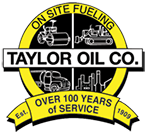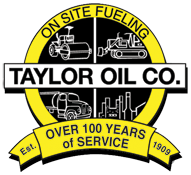Truck Fleet Fuel Economy: In today’s dynamic and competitive business environment, managing a truck fleet efficiently is crucial for success. One significant aspect of fleet management is optimizing fuel economy, which not only contributes to cost savings but also reduces environmental impact. In this blog post, we’ll explore the top five tips to enhance truck fleet fuel economy and maximize operational efficiency.
-
Regular Maintenance and Inspections:
Maintaining a proactive approach to truck maintenance is fundamental in improving fuel economy. Regular inspections and scheduled maintenance help identify and address issues before they become major problems.
Key areas to focus on include:
- Tire Maintenance: Properly inflated and aligned tires can significantly impact fuel efficiency. Regularly check tire pressure and invest in quality, low rolling resistance tires.
- Engine Health: Ensure that engines are well-turned and regularly serviced. Clean air filters, fuel injectors, and timely oil changes contribute to optimal engine performance.
- Aerodynamics: Keep trucks aerodynamically efficient by repairing any damaged panels, mirrors, or fairings promptly. Investing inside skirts and trailer tails can further reduce drag and improve fuel economy.
-
Smart Route Planning and Optimization:
Efficient route planning can make a substantial difference in fuel consumption. Utilize advanced route optimization software to plan the most fuel efficient paths, taking into account factors such as traffic, terrain, and weather conditions.
Additionally:
- Minimize Idling Time: Encourage drivers to avoid unnecessary idling. Modern telematics systems can help monitor and reduce idle time, saving fuel and reducing emissions.
- Avoid Congestion: Plan routes to avoid heavy traffic areas and congested routes. Realtime traffic data and GPS technology can assist in making informed decisions for optimal route selection.
-
Driver Training and Incentives:
Drivers play a pivotal role in achieving optimal fuel economy. Implementing driver training programs and providing incentives can positively influence driving habits. Key considerations include:
- Fuel-efficient Driving Techniques: Train drivers on fuel-efficient driving techniques, such as smooth acceleration and deceleration, maintaining a consistent speed, and utilizing cruise control on highways.
- Incentive Programs: Implement reward systems that recognize and encourage fuel-efficient driving practices. Consider incorporating fuel efficiency metrics into driver performance evaluations.
-
Utilize Technology and Telematics:
Advancements in technology have introduced sophisticated telematics systems that provide real time insights into fleet operations. Leveraging these tools can help optimize fuel efficiency:
- Telematics for Monitoring: Utilize telematics systems to monitor vehicle performance, track fuel consumption, and identify areas for improvement. This data-driven approach enables proactive decision-making.
- Invest in Fuel-Efficient Vehicles: When upgrading your fleet, consider investing in newer models with improved fuel efficiency. Hybrid and electric options may also be viable for certain applications.
-
Load Optimization and Efficiency:
Optimizing the payload and distribution of goods can significantly impact fuel economy. Overloading trucks not only increases fuel consumption but also accelerates wear and tear on the vehicle. Consider the following strategies:
- Right-size Your Fleet: Evaluate the appropriate size of the truck for each job to avoid using oversized vehicles for smaller loads. This ensures that each truck operates at its optimum efficiency.
- Effective Loading Practices: Train staff to load trucks efficiently, distributing weight evenly and strategically placing heavier items at the bottom. This not only enhances safety but also contributes to fuel efficiency.
Improving truck fleet fuel economy requires a holistic approach that encompasses vehicle maintenance, driver training, technology utilization, and strategic planning. By implementing these top five tips, fleet managers can not only reduce operational costs but also contribute to a more sustainable and environmentally friendly transportation system. As technology continues to advance, staying abreast of innovations and integrating them into fleet management practices will be key to achieving long-term success in optimizing fuel efficiency. For more helpful tips visit the section of information articles by Taylor Oil Company.


